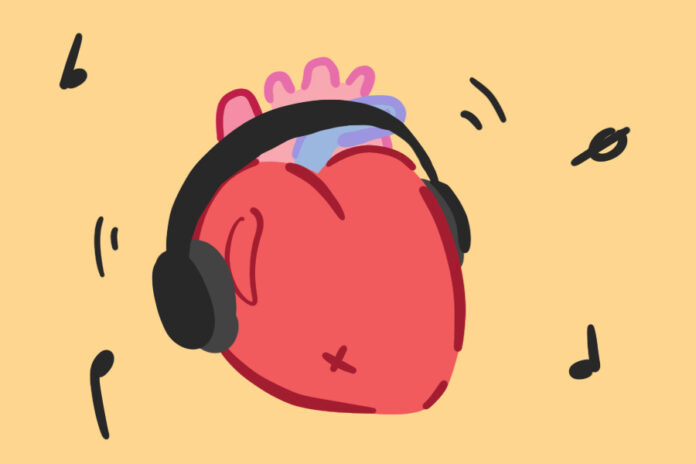UC Davis community members discuss why love is such a popular topic in the music industry
By SARAH HAN — arts@theaggie.org
From The Beatles to Taylor Swift, music’s biggest stars have historically written about love and relationships. Although not all songs are about love, it’s a common theme across the pop music industry. Looking at Billboard’s Top 100, most songs center around different types and stages of love and relationships.
Sophia Wahanik, the principal bassist of the UC Davis Symphony Orchestra, explains that love might be a popular topic because of its relatability.
“Love is a big, human, emotional experience,” Wahanik said. “It’s romanticized. It’s something that can be generalized. You just write a song about somebody you love [but] make it vague enough.”
Indeed, relatability is a common factor. Samuel Nelson, a first-year Ph.D. student in musicology, explains that part of the reason the topic is so relatable is because of the wide variety of types of love that one might write about.
“The varieties of love [are] open-ended,” Nelson said. “The love that you feel for a lover is one way [and] the love that you feel maybe for a parent or for a best friend [are] different as well. [Empowerment is] love of oneself. Love just comes in a lot of different ways.”
Sarah Miller, a fifth-year Ph.D. candidate in musicology, explained that the many types of love and its vagueness furthers its relatability.
“[It’s] broadening the interpretation, being a bit ambiguous of what you’re talking about to apply it to your own circumstance,” Miller said. “I think people often write art, poetry or music perhaps [to] leave the imagination [to] the audience.”
Within the broader realm of love songs, tracks often fall into different “tropes,”
“The trope of the quirky, cute and perfect but ‘I’m so awkward’ girl like Taylor Swift, [or] BTS pretending [to be] this perfect boyfriend,” Miller said. “ I think popular music draws from those sorts of tropes.”
Another reason might simply lie in the historical precedence of love in songs.
“[In the] Romantic era, you’ll see poet composers singing often about love topics, unrequited love and this eternal dichotomy between love and duty,” Miller said.
Society’s shift from “love and duty” to a more free-thinking view of love may also explain the spike in the popularity of exploring love through music.
“You didn’t have a choice [about] love,” Nelson said. “Now it’s much more of a freedom, and there [are] so many different types of love as well.”
Miller further explained that the rise of love songs might be the outcome of breaking out of the social norms of what love is and looks like.
“Foucault, a French philosopher, came out with a book, ‘The History of Sexuality,’ and he talks about how we carefully negotiate norms and in what ways [we can] subvert them through language,” Miller said. “Music, historically, is infamous for being difficult to censor. So in what ways is music used to break societal comfort and norms?”
Miller believes music can be a tool for people to express their emotions — uncensored.
“Writing music and sharing music can be used to talk about things that are difficult to talk about, to put yourself in a place that perhaps language cannot fully grasp,” Miller said.
Wahanik agreed, explaining that music has the ability to let people reflect on and share their experiences.
“We feel things with music, so we can play these things on repeat [and] have our thoughts of love or whatever emotion,” Wahanik said. “It can also [be] played again [during a] break up [or when] you remember how we were loved.”
Correction: A previous version of this article attributed incorrect titles to two sources. The article has been corrected to reflect that Samuel Nelson is a first-year Ph.D. student and Sarah Miller’s is a fifth-year Ph.D. candidate.
Written by: Sarah Han — arts@theaggie.org






